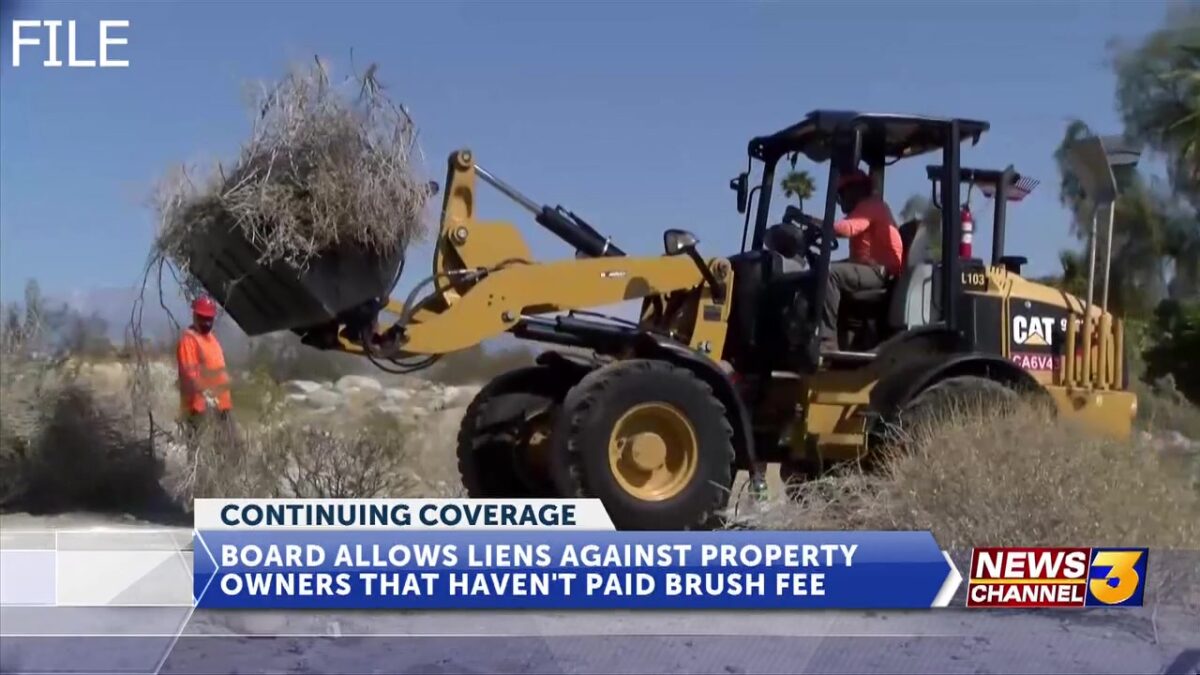RivCo Fire Department gets approval to place fire mitigation charges on property owner’s tax bills

Haley Meberg
RIVERSIDE, Calif. (KESQ)– The Riverside County Fire Department’s request to attach fire mitigation charges to the tax bills of 450 property owners was approved by the Board of Supervisors early Tuesday morning.
In a unanimous vote, the Board of Supervisors signed off on the Riverside County Fire Department’s cost recovery attempts proposed by the Fire Hazard Reduction program.
Officials report the cost recovery is set in place for 450 property owners who have failed to pay the costs of abating weeds and potential fire hazards on their land.
The department claims the owners, who are located in unincorporated areas county wide, owe a total of $295,356 with amounts ranging from $423 to $2,348 per property for activity in 2024.
“The purpose of the Fire Hazard Reduction Program is to reduce or eliminate fire hazards created by vegetative growth and the accumulation of combustible debris, which poses a danger to the health, safety and welfare of the residents in the vicinity of any real property,” according to an agency statement. “Voluntary compliance is the primary goal of the program. Each parcel owner is provided the opportunity to abate the property prior to the county’s conducting the abatement.”
The Fire Hazard Reduction Program explains their work involves sending out contractors to clear overgrowth that could potentially fuel brush fires during wildfire season. Officials report owners were served with orders to abate or mitigate potential hazards, and when inspectors saw no action had been taken contractors were sent to the locations under county authority to clear away the excess foliage.
The department notes that properties in four of the five county districts were identified as delinquent on payments and were billed to recover the county’s expenditures. However, no property owners spoke in front of the board during Tuesday’s meeting.
At this time, a $254 administrative fee was folded into the bill sent to the owners which will function as a tax lien on the properties.
Stay with News Channel 3 for more updates.